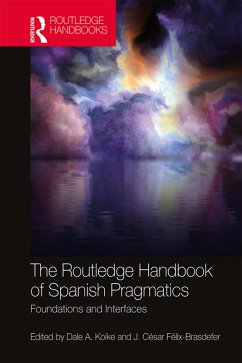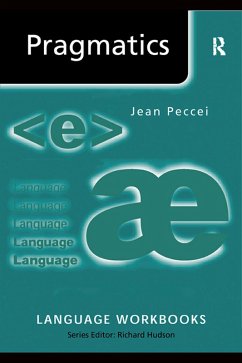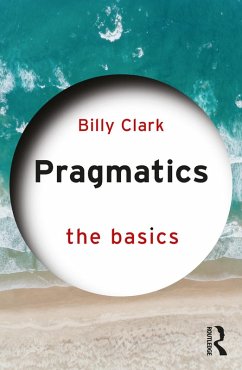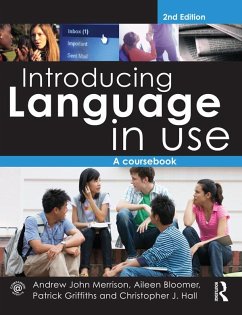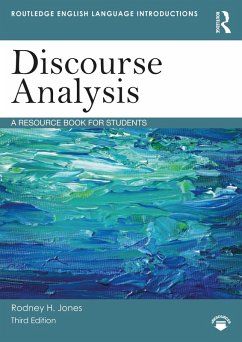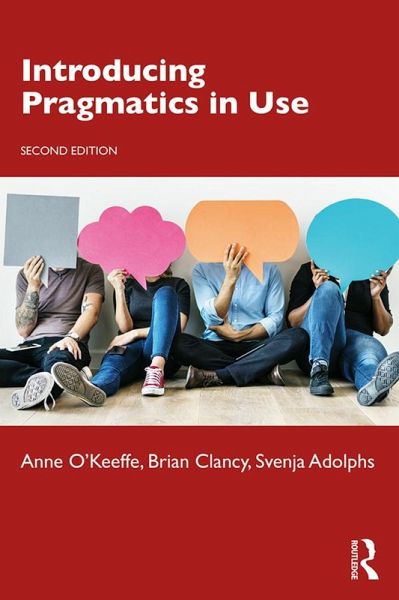
Introducing Pragmatics in Use (eBook, ePUB)
Versandkostenfrei!
Sofort per Download lieferbar
33,95 €
inkl. MwSt.
Weitere Ausgaben:

PAYBACK Punkte
17 °P sammeln!
Introducing Pragmatics in Use is a lively and accessible introduction to pragmatics which both covers theory and applies it to real spoken and written data. This textbook systematically draws on a number of different language corpora and the corresponding software applications. Its primary focus is the application of a corpus methodology in order to examine core component areas such as deixis, politeness, speech acts, language variation and register. The main goal of the book is to contextualise pragmatics in the study of language through the analysis of different language contexts provided by...
Introducing Pragmatics in Use is a lively and accessible introduction to pragmatics which both covers theory and applies it to real spoken and written data. This textbook systematically draws on a number of different language corpora and the corresponding software applications. Its primary focus is the application of a corpus methodology in order to examine core component areas such as deixis, politeness, speech acts, language variation and register. The main goal of the book is to contextualise pragmatics in the study of language through the analysis of different language contexts provided by spoken and written corpora.
Substantially revised and updated, this second edition covers a wider range of topics, corpora and software packages. It consistently demonstrates the benefits of innovative analytical synergies and extends this to how corpus pragmatics can be further blended with, for example, conversation analysis or variational pragmatics. The second edition also offers a new chapter specifically dedicated to corpus pragmatics which proposes a framework for both form-to-function and function-to-form approaches. The book also addresses the - sometimes thorny - area of the integration of the teaching of pragmatics into the language classroom. All chapters in the second edition include a number of cohesive, step-by-step tasks that can be done in small groups in class or can be used as self-study resources.
A wide range of illustrative language samples drawn from a number of English language corpora, coupled with instructive tasks and annotated further reading sections, make this an ideal textbook for advanced undergraduate or postgraduate students of pragmatics, discourse analysis and corpus linguistics within applied languages / linguistics or TESOL programmes.
Substantially revised and updated, this second edition covers a wider range of topics, corpora and software packages. It consistently demonstrates the benefits of innovative analytical synergies and extends this to how corpus pragmatics can be further blended with, for example, conversation analysis or variational pragmatics. The second edition also offers a new chapter specifically dedicated to corpus pragmatics which proposes a framework for both form-to-function and function-to-form approaches. The book also addresses the - sometimes thorny - area of the integration of the teaching of pragmatics into the language classroom. All chapters in the second edition include a number of cohesive, step-by-step tasks that can be done in small groups in class or can be used as self-study resources.
A wide range of illustrative language samples drawn from a number of English language corpora, coupled with instructive tasks and annotated further reading sections, make this an ideal textbook for advanced undergraduate or postgraduate students of pragmatics, discourse analysis and corpus linguistics within applied languages / linguistics or TESOL programmes.
Dieser Download kann aus rechtlichen Gründen nur mit Rechnungsadresse in A, B, BG, CY, CZ, D, DK, EW, E, FIN, F, GR, HR, H, IRL, I, LT, L, LR, M, NL, PL, P, R, S, SLO, SK ausgeliefert werden.







